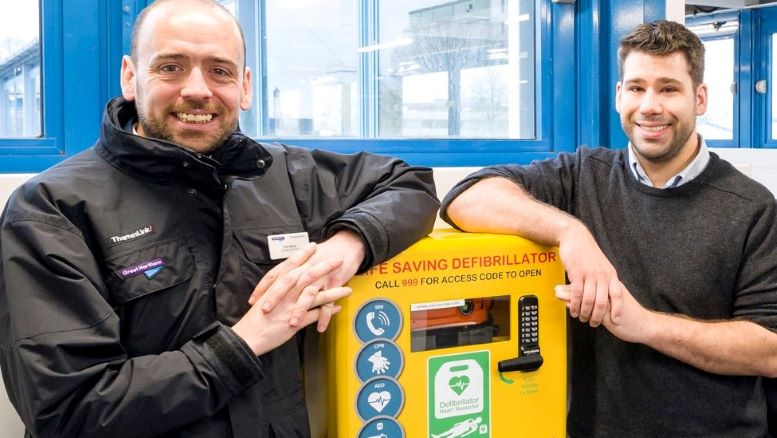
Sudden cardiac arrest is a leading cause of premature death, according to a recent report by the Resuscitation Council UK and the British Heart Foundation.
In cardiac arrest, the heart’s steady rhythm is often replaced by disorganised electrical activity called ventricular fibrillation (VF). The sooner VF is treated by an electrical shock (defibrillation), the greater the chance of the person’s life being saved. Immediate action by members of the public can save many lives.
The report claims that many people who collapse with cardiac arrest can be saved if people nearby:
- recognise what has happened;
- call for an emergency ambulance immediately;
- start and continue cardiopulmonary resuscitation (CPR) – especially chest compressions;
- use an automated external defibrillator (AED) to shock the heart back to its normal rhythm.
With more than 30,000 out-of-hospital cardiac arrests across the UK every year and less than one in ten surviving, the use of a defibrillator is vital, as without immediate treatment, 90-95 per cent of sudden cardiac arrest victims will die.
AEDs are now appearing in many public spaces around the country. On the railway, Govia Thameslink Railway (GTR) is fitting defibrillators at stations across its network, which is one of Britain’s biggest, covering London and nine counties.
GTR, with the Sussex Heart Charity, had already installed life-saving automatic defibrillators at around 50 stations throughout Sussex and several other busy stations. It has now begun to roll them out to over 200 more on the rest of its Thameslink, Great Northern and Southern networks.

Tom Moran, managing director of Thameslink and Great Northern and the sponsor of the project, said: “Fitting defibrillators to all our stations is part of our commitment to transform lives and communities. I’m sure passengers will welcome this initiative – these devices are simple and straightforward to use and will save lives.
“Your chance of surviving a cardiac arrest fall by 10 per cent for every minute without help and a defibrillator can increase chances of survival by 50 per cent.”
The first four stations to be fitted with the new defibrillators are Welwyn Garden City, Hadley Wood, Knebworth and Potters Bar.

Local resident Arline Hursey helped launch the programme at Welwyn Garden City. She lost her 18-year-old son, James, to a sudden cardiac arrest four years ago and set up the national campaign group Defibrillators in Public Places (DiPPs). She said: “James was a gentle giant at 6’4 with a wicked sense of humour and an all-encompassing hug. His loss was a devastating blow to his family, friends and his community.
“As time is of the essence when it comes to someone suffering from a cardiac arrest, we want to raise awareness and demonstrate to people the ease of using defibrillators within the first couple of minutes. Our vision is for everyone to be able to access a defibrillator within four minutes. It is a vital piece of equipment to saving the lives of our loved ones.”


Be the first to comment